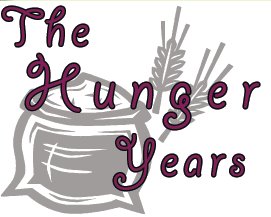Remember the old days? Where families worked the land, putting their sweat, blood and tears into the soil, lovingly watering and pruning and turning soil? Remember that they would handpick the fruits and veggies and sold them to others, who then made good, wholesome meals to nourish their family?
Don't remember? That's okay; I don't really either. Like most of this generation, I grew up on processed food. Even when I managed to see "fresh" food, it was generally grown on a giant corporate farm across the country (or in another country) and wasn't touched by human hands until it reached the grocery store. It is usually picked before it's actually ripe and then it ripens as it journeys miles and miles and miles to land on my table.
Knowing that we've lost a fundamental connection to food is hard to accept and fixing, but reading about someone else's battle to promote local eating and struggling to overcome the rules in place that favor giant conglomeration instead of tiny farms is encouraging.
 That's why I want to bring your attention to the wonderful blog called Diary of a Young Farmer. I was instantly engrossed in the entries found on Edible Portland, a magazine and Web site based in Portland, Oregon (of course).
That's why I want to bring your attention to the wonderful blog called Diary of a Young Farmer. I was instantly engrossed in the entries found on Edible Portland, a magazine and Web site based in Portland, Oregon (of course).Their mission is simple: "Encouraging people to eat more locally grown and locally produced foods. By eating locally, we help sustain the small family farms that grow these foods, we enjoy food that is fresher and healthier for us, and we help reduce the cost on the environment — and in dollars — of transporting foods over long distances."
The Diary of a Young Farmer follows Zoë Bradbury, who grew up on a farm in Oregon but didn't return until she had dipped her toes in 9-5 living. Now she's back, leasing land next to her mom and sister, and starting from scratch a local farm to supply locavore restaurants. What sticks out about her struggle is the emotional connections she has. Her first post is on artichokes. There are memories embedded in artichokes for Zoë, memories of spring and growing up. Her mother gave her artichokes when she moved away (those artichokes were given to her by a friend). Her artichokes have history, Zoë writes. They're of "the same genetic stock that had fed me for 25 years." As she says, "After our five-year stint up north together, me and the chokes have finally come full circle back to home turf. We’re planning on staying awhile."
We can't all go live on a farm, but we can cheer on someone else's struggle. We can find a local farm to connect with, to support and to nourish ourselves with that produce. Search for farm co-ops in your area and you'll be surprised how many pop up. You can grow a plant in your back yard, engaging in the ancient struggle that made food mean more to a person, to have value beyond filling our bellies. Food nourishes us, body, mind and soul. We can't forget that.



